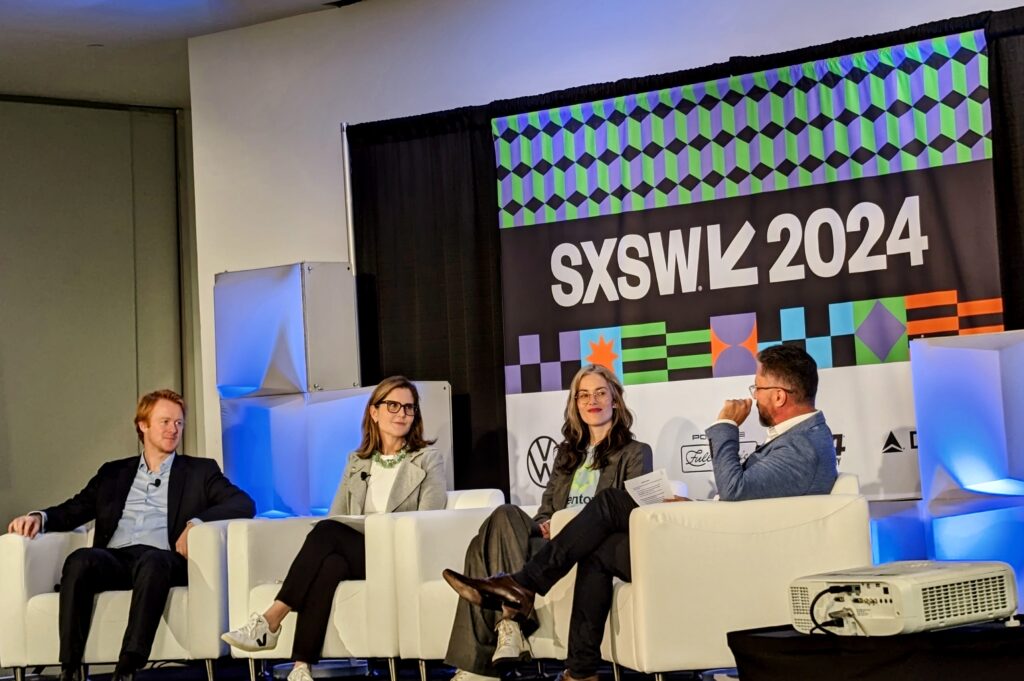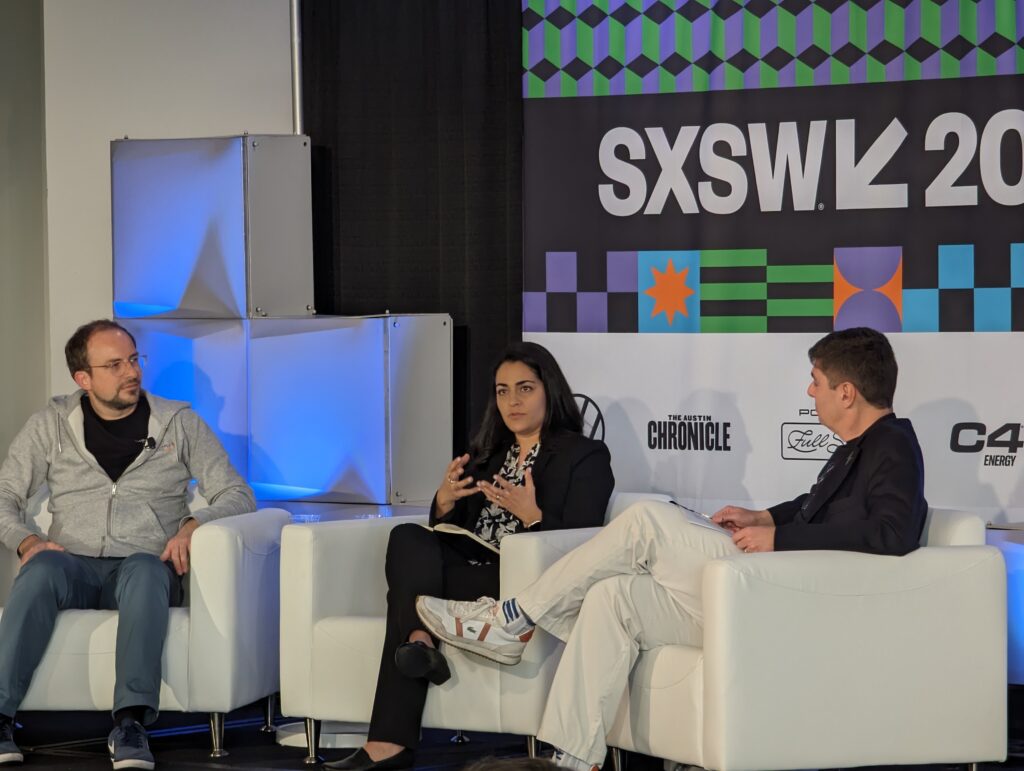Embraer’s SXSW Panels Discuss Sustainable Aviation Challenges and Opportunities
Share
At this year’s South by Southwest (SXSW) festival, Brazilian aerospace manufacturer Embraer hosted two insightful panel discussions focused on the challenges and opportunities in making aviation sustainable. The sessions brought together industry leaders, innovators, and experts to explore the path towards decarbonising the aviation sector and achieving net zero emissions by 2050.

Moderated by Cesar Pereira, Embraer’s head of sustainability, the first panel featured Aisling Carlson from Greentown Labs, Kirsten Bartok Touw from New Vista Capital, and Andreas Aks, former CEO of Wideroe Zero. The discussion highlighted the urgent need for action. Pereira noted that aviation is “responsible for about two to 3% of global CO2 emissions, a number that is expected to rise with growing demand for air travel.”

To address aviation’s global warming issue, the panellists emphasised the importance of collaboration and partnerships in driving innovation.
Carlson stressed the need for diversity, stating, “I would like to see diversity of players. So, more new entrants, new technologies, new ideas coming into the space. I understand that about 88 per cent of pilots and engineers are currently white males. I would love to see more women. I’d love to see more people of colour in this space.”
The panellists also discussed the crucial role of government support through policies, incentives, and public-private partnerships. Bartok Touw argued that “there needs to be some sort of support coming from the government if they want new models, new initiatives.”
This is because other investments offer better and faster returns, which is “partly why you are seeing institutional money and family offices, foundations and endowments going into areas where there are tech-like returns”, which are not typically found in the deep tech space, such as sustainable aviation.
Andreas Aks reinforced this point by highlighting two key aspects. Firstly, for a company to produce a new kind of aircraft, scalability is essential; instead of “five or ten…you need to produce 500 or 1000 to make that kind of investment worth it.”
Secondly, for this to happen, there must be harmonisation in regulations between different authorities in various countries to create markets large enough for the OEMs to produce new aircraft.
Aks also pointed to his native Norway, where a combination of government incentives and regulations had led the country to have the highest rate of EV sales globally, with 80% of new cars sold being electric rather than gas-powered. According to Aks, this demonstrates what can be achieved with the right regulatory support.

The second panel, moderated by Daniel Moczydlower, President of Embraer X, featured Rosemary Cox-Galhotra from Breakthrough Energy and Lukas Kaestner from Sustainable Aero Lab. The conversation delved into the technological innovations and societal shifts necessary for sustainable aviation.
Kaestner emphasised the importance of public awareness and motivation, drawing parallels to the space race of the 1960s. He talked about the extrinsic motivation – at the time, the desire to beat the Soviets in sending someone to the moon, and the intrinsic motivation that the public wanted it: “We need to have the intrinsic motivation within the public that the public state. Yes, I want sustainable transportation. I want to have zero emissions. This is cool. Let’s build it.”
Cox-Galhotra highlighted the need for clean aviation technologies to be both technically and economically viable, explaining the concept of the “green premium” – the additional cost of clean solutions compared to fossil fuel-based ones. She noted that “ideally, they get to a place where they don’t need those incentives in order to be commercially viable, compared to the incumbent technologies, but it’s a long road, and we need help along the way.”
The panellists also discussed promising technologies such as electric and hydrogen propulsion, advanced sustainable aviation fuels, new aircraft designs, and digitalisation to improve operational efficiency.
Both panels underscored the scale and complexity of the challenge ahead, with Kaestner saying that unlike COVID, where vaccines meant aviation could restart after two years, there was no vaccine here; this was a long-term issue that we would need to work on for decades.
Despite the daunting task, the panellists expressed optimism and determination. Cox-Galhotra concluded, “i think there are exciting aspects of what we’re seeing. There are really bright shining lights and some exciting developments in terms of market traction; for some of the clean energy technologies we’ve been discussing, I think I’m ultimately optimistic that we will make a very big impact on climate change.”


